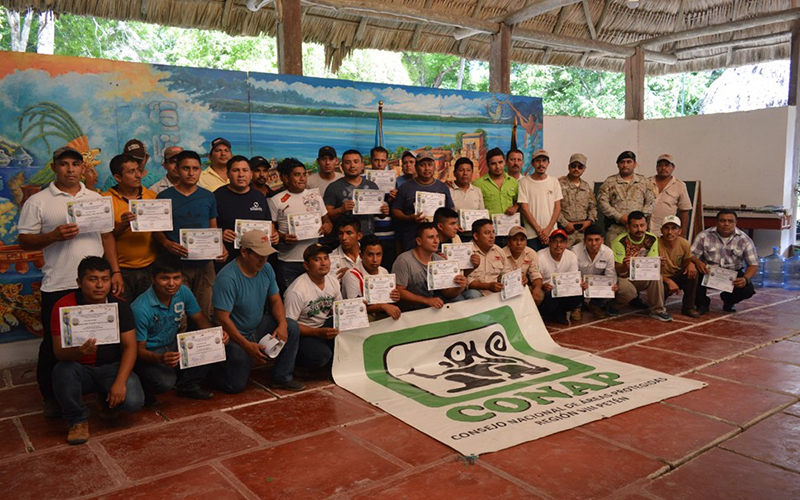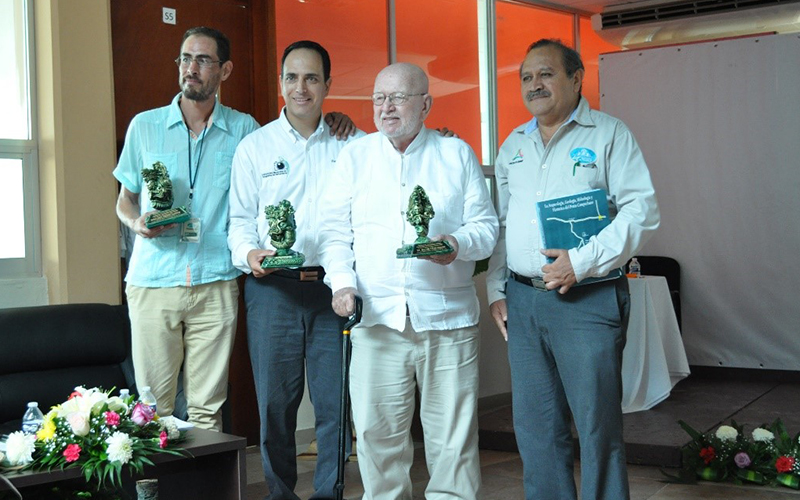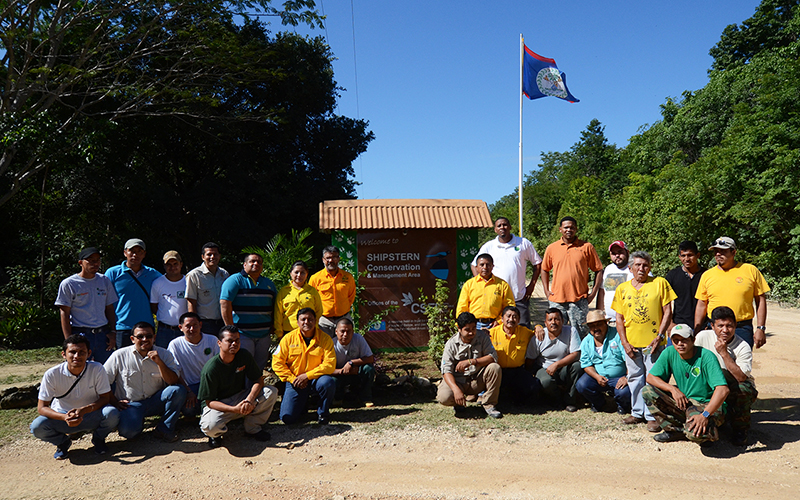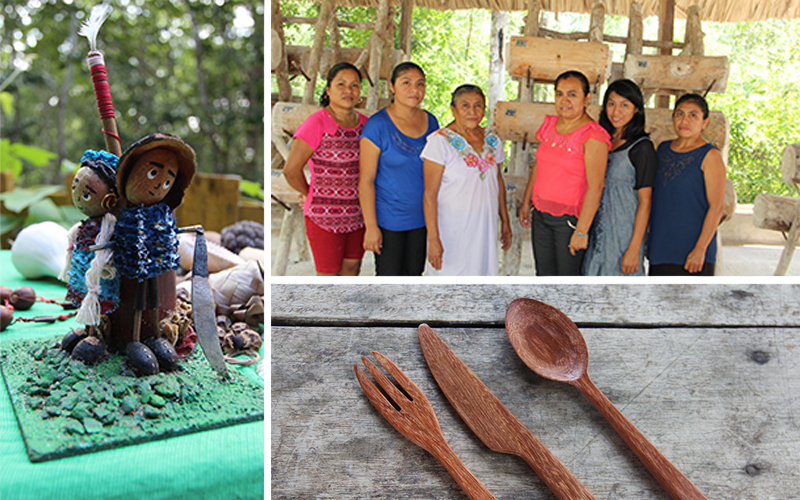As part of the activities developed by the GIZ Selva Maya Program in its 3rd line of work: “Sustainable alternatives to increase income”; The past 26th and 27th of April, 2016 was carried out in the municipality of Calakmul, Campeche; An exchange of experiences on sustainable beekeeping issues, involving government agencies and honey producers from Belize, Guatemala and Mexico, with the aim of promoting alliances and synergies to strengthen beekeeping activity in the three countries.
Within the exchange, a space of interaction was promoted in which different entities of the government and civil society exposed the efforts that are made in their countries to strengthen the honey production chain. On behalf of Mexico Mr. José Zúñiga, Director of the Calakmul Biosphere Reserve (CONANP) and Mr. Porfirio Uribe, a microentrepreneur and producer of organic honey. On behalf of Guatemala, Mr. Adrián Calderón, representing the Ministry of Agriculture, Livestock and Food (MAGA), Mr. Julio Madrid of the National Council of Protected Areas (CONAP), Julio Javier Madrid of the Association of Forest Communities of Petén (ACOFOP) and Juan Trujillo of the Rainforest Alliance. From Belize, Mr. Arnoldo Meléndez, extensionist and field consultant. This space provided the opportunity to deepen and reflect on relevant issues in the beekeeping sector, including organic production, marketing, production techniques and management and production in protected areas, among others topics.
With the support of some members of the organic honey Calakmiel Company, school apiaries were visited to know in a practical way some management techniques that are promoted in this region of the south of Mexico; Likewise, a tour of the facilities of the processing plant was made.
The agenda concluded with a visit to Ejido 20 de Noviembre to learn about the experiences of the Tumben Kab women’s group. They shared their knowledge and practices in the management of some species of native bees commonly known as melipon bees or stingless bees and as well as the challenges they have overcome to consolidate themselves as a group and generate an alternative of self-employment and income through the elaboration of cosmetic products and personal hygiene.
Among the results achieved by the meeting, it was agreed to continue in close communication among the three countries to exchange information on topics of common interest, such as bee pests, transgenic products, marketing and technological innovation, through the designation of focal points.




